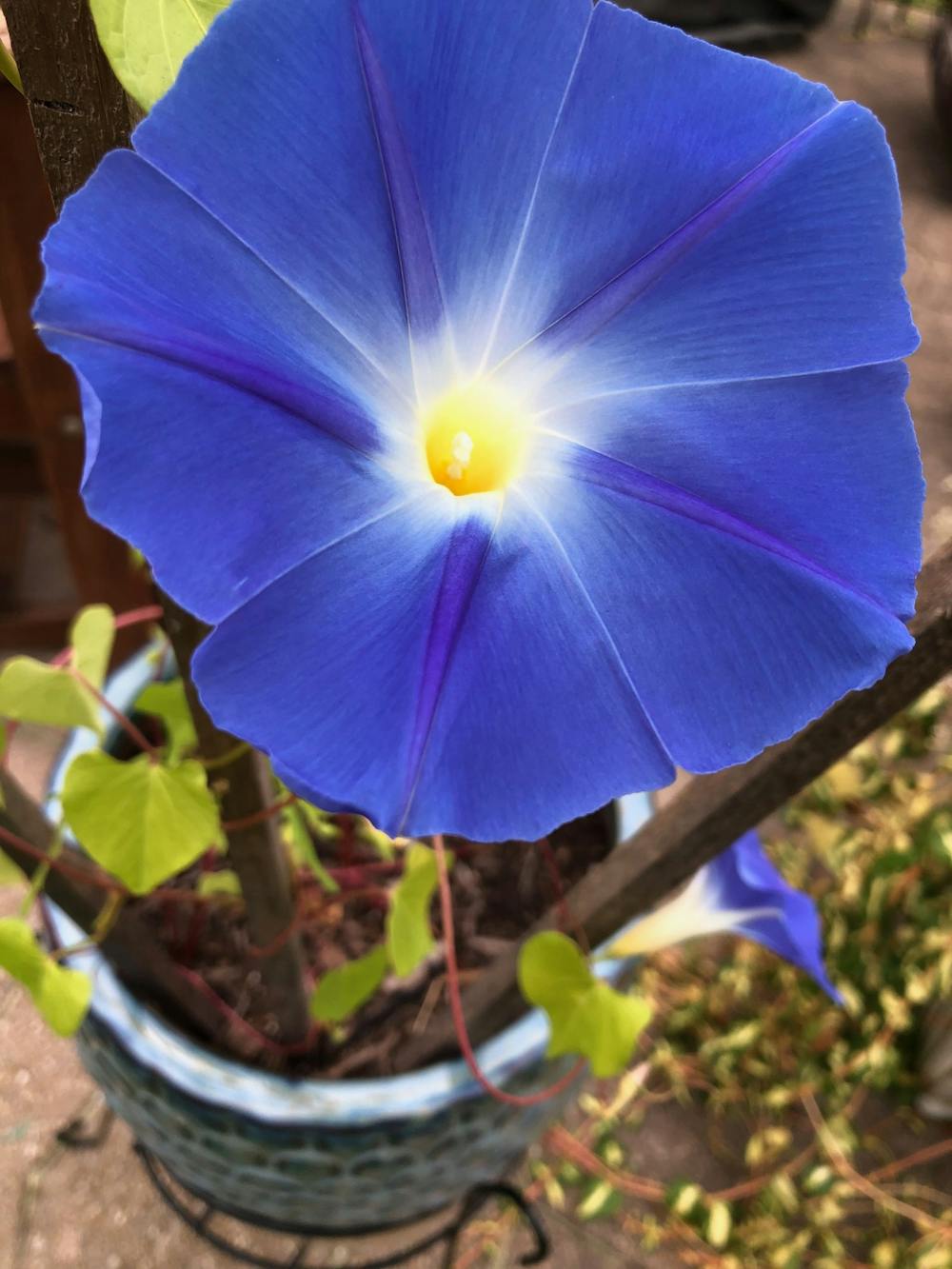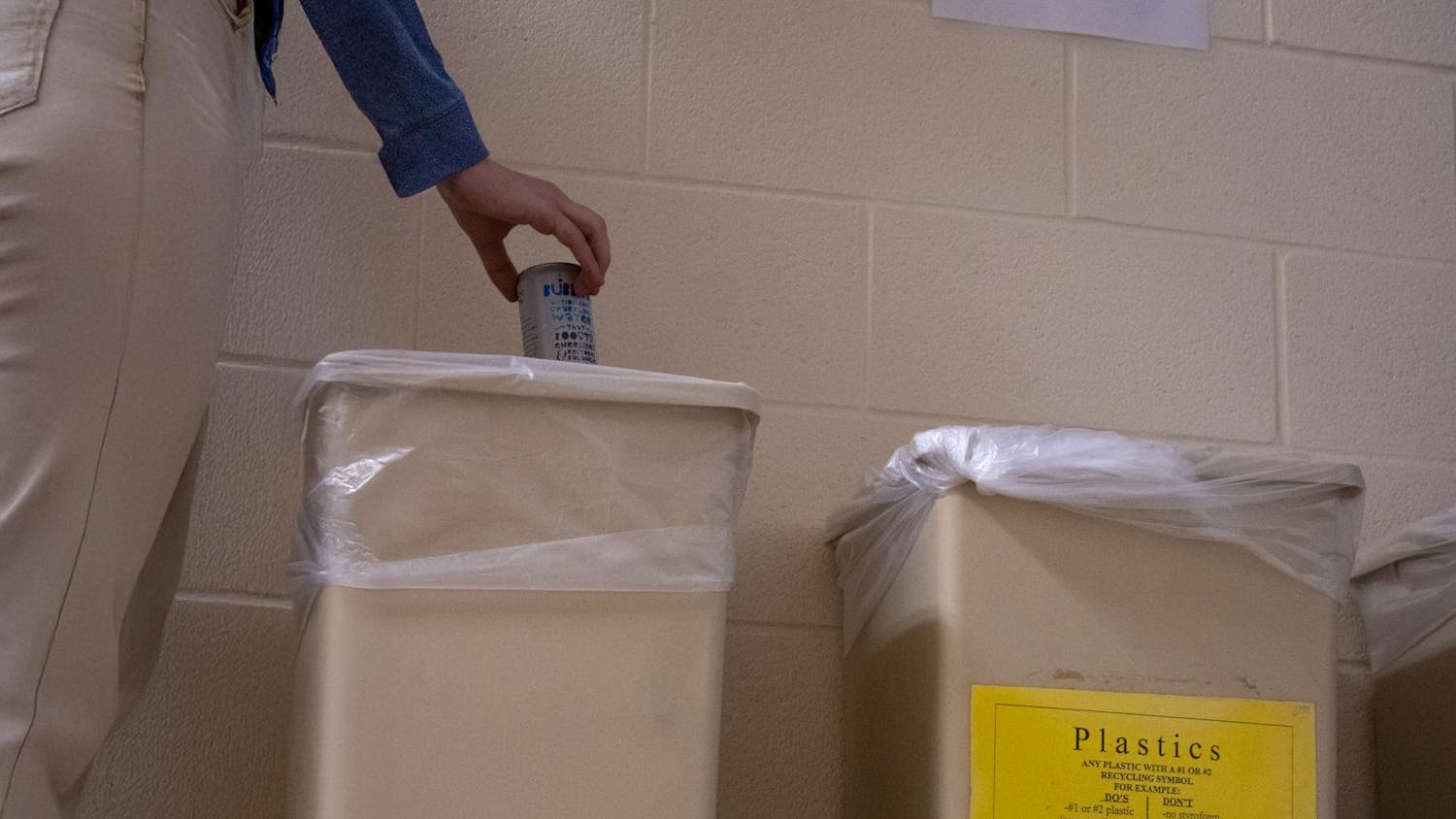Last spring, I planted morning-glories in an azure pot on the patio in my backyard.
After a series of hastened goodbyes and a transition home to spend the semester in quarantine, my heart needed a little ‘note-to-self’ that things were still growing and changing.
These flowers, though planted and watched with diligence, grew with neither predictability nor expedience. When they did bloom five months later, despite the two-to-three weeks specified on the packaging, their beauty faded quickly.
The flowers grew on a timetable that was not my own. Nevertheless, I discovered in them the Lord’s gentle reminder that what’s been planted in hope is ours to tend and His to grow, for he will restore and make beautiful what lies before us.
In this season of growth and transition, my heart has often resonated with Nathaniel’s question: “Can anything good come from Nazareth?” (1 John 1:46). I have asked variations of this question throughout the past year.
“Will I find hope, discover healing? Will relationships be redeemed?”
On any given day, we may be tempted to despair over any number of things. Some days, promises of restoration and redemption can often feel empty and elusive. In the midst of our pain, the temptation is to despair.
Yet, in the midst of our sorrow, the Lord extends an intimate invitation to “come and see” that his promises for each one of us are truly good (1 John 1:46).
Maybe this invitation is simply meant to draw our attention to the one who is goodness Himself — the one who walks with us through our broken realities. It could also be an invitation to trust that seasons marked by real loss and real lament are nevertheless experiences of true grace and restoration.
Our lives are journeys in which faith and hope have a chance to be expressed — not just with hands raised, but with what Eugene Peterson has termed A Long Obedience in the Same Direction. This day-to-day obedience means faithfully stewarding whatever work the Lord has entrusted us with. K.J. Ramsey, author of This Too Shall Last, asserts that, “Attention is the embodiment of faith.” May attention be our prayer — for the Lord’s loving-kindness does restore brokenness. When all we see is barren soil, we may still dare to hope.
Yes, goodness Himself is in our very midst. Norman Wirzba articulates in his book Food and Faith that it is “all around us” as our “place of work”.
Throughout my time in Taylor Student Organizations (TSO), my place of work has been deeply shaped by the leadership of the Director of Student Programs, Steve Austin, and TSO Assistant, Debby Cheriuyot Bii. In their own unique ways, they each have modeled what it looks like to pursue avenues of attention as prayers of hope.
Austin shared that, for him, attention involves “Persistence in the daily things. The long game that we’re developing over time is that we all need to be knowing simultaneously how to live with the beauty and the ugly of life..we are continually in the midst of it.”
Sharing a similar sentiment, Debby Cheriuyot Bii said that, “Persistence can get weary when you don’t know what the end is going to look like. But I guess it just keeps going back to just showing up. Just keep moving. I think that alone shows perseverance.”
The presence of God and the comfort of Jesus, at times, can feel absurd to me. Yet, I find myself continually stumbling into the loveliness of his grace.
Even in the midst of all this past year has entailed, the Lord has faithfully nursed my heart back to his goodness, time and time again. With each day, I am reminded that even in these seasons of nuance, I will always be invited to simply “come and see.” To see that loveliness can still come out of the ‘Nazareth’ of our lives (1 John 1:46). Yes, the most unlikely, potentially ramshackle places are still origins of his goodness.
The ugliness is real, yet beauty remains.
May we dare to say ‘yes’ to the invitation to “come and see” the beauty we have been invited into. May we dare to hope. And may we offer our attention as a prayer to see God’s goodness lived out.
For it is “because of the Lord’s great Love we are not consumed” (Lamentations 3:24).
Yes, because of the Lord’s great Love, we are not consumed.





